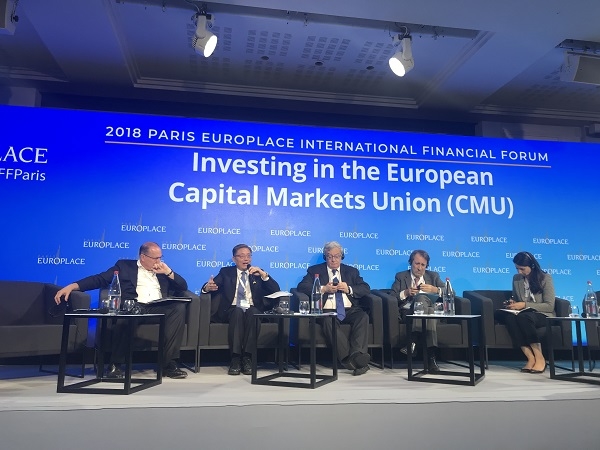Media
President Tu Attended 2018 Paris Europlace International Financial Forum
14-07-2018On July 11, 2018, Mr. Tu Guangshao, Vice Chairman and President of CIC, attended 2018 Paris Europlace International Financial Forum, and spoke at the Investing in European Capital Market Union Roundtable.
President Tu said, the last time he attended an event of EUROPLACE was when continental Europe was in the middle of the debt crisis, with bleak prospects for recovery. Now we gladly see that European economies have not only got out of the aftermath of the crisis, but also embarked on a path of recovery. This is attributable to the European financial market's endeavors to advocate cross-border investment and attract foreign capital.
He pointed out that the trade frictions between the US and China and US and Europe are escalating, taking a toll on bilateral and multilateral economic ties. This will do no good to solve development problems of countries, and will cause serious imbalance. According to the statistics of UNCTAD, in 2017, global cross-border direct investment decreased by 23% from 2016, dropping for three consecutive years. This shows that the rising of protectionism is jeopardizing cross-border direct investment for real. Should it continue, the global economy that just started recovering might fall right back into a new round of challenges.

"Cross-border investment not only optimizes global resource allocation, but also boosts global economic development by improving global capital flow and reducing trade frictions." He called for global consensus on cross-border capital flow, an open mind and proactive measures, and fair, transparent, stable and predictable investment environments for foreign investors."Cross-border investment not only optimizes global resource allocation, but also boosts global economic development by improving global capital flow and reducing trade frictions." He called for global consensus on cross-border capital flow, an open mind and proactive measures, and fair, transparent, stable and predictable investment environments for foreign investors."Cross-border investment not only optimizes global resource allocation, but also boosts global economic development by improving global capital flow and reducing trade frictions." He called for global consensus on cross-border capital flow, an open mind and proactive measures, and fair, transparent, stable and predictable investment environments for foreign investors.
He took China's development as an example. He said, this year marks the 40th anniversary of China's economic structure and employment. Therefore, China still advocates internationalization, seeks to attract foreign investment, and encourages cross-border investment.
"Cross-border investment can help further optimize EU's economic structure. As an influential financial market in the international community, EU's practices and experience of attracting FDI are worth learning from for other economies." He said that, generally speaking, EU countries have advantages in infrastructure, energy, aeronautics and space, and high-end consumer goods. EU multinationals are highly competitive in the global market. In addition, EU countries also have mature cultures for finance, with developed banking, insurance and security markets. Their regulatory systems are flexible and effective. Mr. Tu also said that EU is expected to be more open and play bigger roles in enhancing internationalization and cross-border investment. CIC will also expand and deepen investment cooperation in EU.
"2017 is a significant year for CIC. Its overseas investment posted a net return of 17.59%, a record high in CIC's history." He said that CIC as China's sovereign wealth fund conducts long-term financial investment on a commercial basis. CIC is committed to creating a fair and transparent investment environment, embodies corporate social responsibility and green investment in its investment practice, and through enhancing cooperation with enterprises and financial institutions, makes contribution to the economic development, job creation, and economic structure optimization of recipient countries while generating investment returns.

